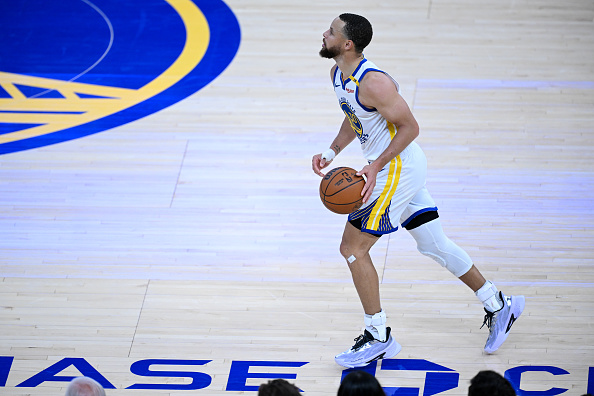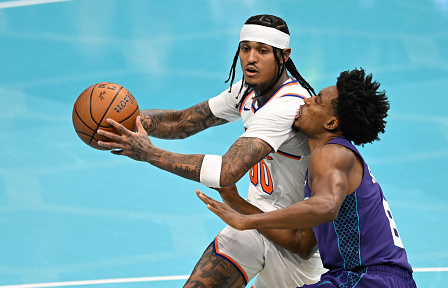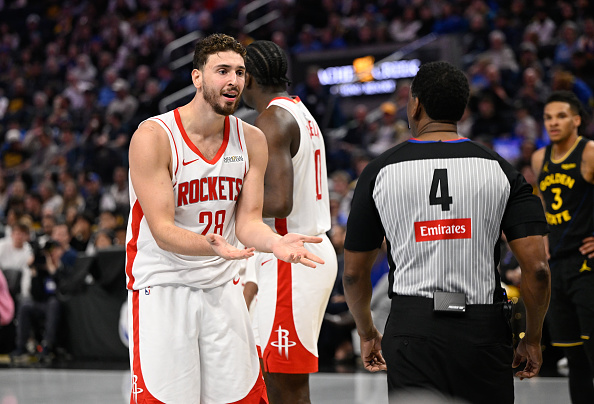- Josh Elias | August 17th, 2019
I’ve always been a big fan of DeMarcus Cousins.
I understand that’s not a particularly universal opinion – his reputation has always one that takes into consideration supposed character problems and volatility.
But he’s an incredibly talented basketball player and incredibly passionate about what he does.
And that’s why his sequence of injuries ever since January 26, 2018, is so upsetting.
Just four days earlier, he produced the first 40-20-10 game the NBA had seen in over forty-five years.
The only other players to do that, ever?
Elgin Baylor, Kareem Abdul-Jabbar, Oscar Robertson, and Wilt Chamberlain (six times!).
And then, just two games later, his career path would be irreversibly altered.
He tore his left Achilles tendon in the final seconds of a close win against Houston – a game in which Cousins played a crucial role and notched a triple-double into the stat sheet.
His Achilles injury was just the beginning, followed quickly by a quadriceps tear and, just this week, a torn ACL.
In just over a year and a half, DeMarcus Cousins has gone from the top of the world – largely seen as the best center in the NBA – to having his very place in the league being in jeopardy, for reasons entirely outside of his control.
The initial Achilles injury was bad enough. Only one player, Dominique Wilkins, has ever recovered athletically to an extent at all similar to his level of play prior to the injury, and even that was quite temporary. The vast majority of players return with less than 60% of the level of productivity that they’d previously had, and that number continues to drastically go down over time, as opposed to other injuries where recovery just takes time.
He was never going to be the same player after that.
That’s also the case for Kevin Durant, John Wall, and J.J. Barea, all actively nursing Achilles tears of their own.
With this most recent injury though, it becomes a legitimate question as to whether we ever see him on an NBA court again.
And whether we should.
Even if he is still physically able to return next year, or even late this season, is it really a good idea for him, as far as life goes? I don’t know.
But instead of venturing too far down the rabbit hole of the realistic tenability (or lack thereof) of the career of a man who worked his entire life towards becoming one of the best at what he does, let’s talk about how his absence will affect the Lakers.
The short answer: not as much as you’d think.
But that’s not to say it doesn’t change things at all.
They weren’t asking him to be an all-star or anything like he has been in the past. They weren’t even necessarily expecting him to start,
In fact, the most likely expectation the Lakers’ front office had for Boogie is about 16-18 minutes per game for at least 50 games, producing somewhere around the range of eight points, five rebounds and upwards of two assists.
Which sounds somewhat meager. It’s enough to affect the results of a handful of games, but not much more than that.
And for him, it is.
He’s never had that limited of an impact on a team, except for the eight relatively unhealthy games he played in the playoffs for the Warriors.
But much more than that would’ve been merely a pleasant surprise for the Lakers this year, given his recent injury history, the effect that Achilles tears have on players, his fluctuating weight, and the roster situation for the rest of the team.
The problem comes with what his absence means for Anthony Davis.
It means Davis has to play more center than he’d prefer.
It’s weird that I consider that a problem, right? I mean, people have been clamoring for him to play center for years, and some are upset with him for publically asserting that he sees himself as a power forward.
Well, let’s go through things individually. One of Davis’ biggest strengths has always been his rim protection.
He’s played 144 games primarily as a center, compared to 322 primarily as a power forward. In his 144 games as a center, he’s blocked five shots or more eleven times. Which sounds great, until you realize he’s done it 45 times as a power forward.
Accounting for the difference in games played, that means he’s almost twice as likely to block five shots in a game as a power forward compared to as a center.
Beyond that, if you increase it to six shots or more, he’s more than four and a half times as likely to do it as a power forward, and out of the nine times he’s blocked eight or more, not a single one came playing center.
And while he is slightly more likely to score upwards of 35 points as a center (in 14.6% of games as a center, compared to 13.0% as a power forward), his percentages tell a different story.
In his 21 games as a center in which he scored that many points, he has shot 57.2% from the field and 41.8% from behind the arc, compared to 61.6% from the field and 42.2% from three-point territory in his 35+ point outings as a power forward. A 4.4% difference is far from insignificant.
His turnover-proneness also increases drastically as a center. Anthony Davis has played 27 games in which he’s turned the ball over on upwards of five occasions, and 14 of them occurred as a center, remarkable considering he’s played power forward in 69% of his career games. 14 games out of 144, compared to 13 games out of 322, means Davis is heavily turnover-prone 2.4 times as often when he plays center.
Fouls also increase for Davis as a center, as he fouls 2.49 times per game as opposed to just 2.33 per game as a power forward despite averaging slightly less playing time in the center position, meaning that his chances of foul trouble increase by approximately 7% on any given night.
His rebounds are higher at center, with 11.8 per game compared to 10.1, but that’s the only thing that he does better while playing the five, and that’s partially explained simply by having shorter teammates on the floor in the average lineup that would have him in that position.
Is there ever a situation in which it would be worth compromising offensive efficiency, blocks, ball control, and foul trouble for a bit of an increase in rebounding?
Sure, certain situations could prioritize the necessity of rebounding over one or two of those things.
But not all.
And certainly not while on a contender.
Lakers, please give up on the pipe dream that Andre Iguodala might somehow get bought out before February, and just sign another backup center.
There’s quite a few of them.
In fact, here’s a list.
Dwight Howard. Joakim Noah. Zaza Pachulia. Marcin Gortat. Tyler Zeller. Salah Mejri. Nene. Isaac Humphries. Chinanu Onuaku. Malcolm Thomas. Amida Brimah. John Bohannon. Cory Jefferson. Maik Zirbes. Lavoy Allen. Luke Fischer. Matt Rafferty. Alexis Ajinca. Oguz Savas.
It’s unlikely we’ll see more than five of them on an NBA court this year,but please, sign one of them – any of them – before even considering moving Anthony Davis to center. It’s for your own good.
Follow Us on Twitter @thescorecrow
Follow Us on Reddit at u/TheScorecrow
Follow Us on Facebook at The Scorecrow
Follow Us on Instagram at The Scorecrow
Follow Josh Elias on Twitter @thejelias
Main Credit Image: [getty src=”648652170″ width=”594″ height=”544″ tld=”com”]






